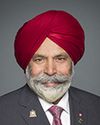Thank you very much.
I want to begin by thanking the citizens' panel for the work that you've done. To come out of your homes and take on this study as volunteers is a wonderful accomplishment and the time and energy you've put into it is quite remarkable, so thank you very much for that.
The committee has been talking about this topic for some time now. I have been asking myself how to keep this as simple as we can. To me, the basic transaction is that a Canadian meets with a caregiver, doctor, nurse practitioner, then a prescription is written, and then they go into a pharmacy and receive the drug. There may be a small, flat dispensing fee, maybe a copayment to be determined, but they receive the drug, they go home, they take it, and—presto—25% of Canadians get what the other 75% have, that is, access to drugs.
For the pharmacists, there's a win. Instead of dealing with hundreds of private insurance plans, they have one organization they contact for reimbursement and for their fee. The first complexity, though, is what would be permitted and what prescriptions they could go in with. I heard slightly different views here from Larry and Peter.
The World Health Organization has already come out with a list of essential drugs. I think you recommended that the essential drugs are there. This is pretty simple; it's the Pareto principle. Eighty per cent of prescriptions are going to be coming from about 20 per cent of the available drug pool. Most of those are already in generics. Most of them are already under pretty aggressive pricing models. This should be a simple list to start with.
Then we add in the rare disease drugs and the other ones as we go forward and then we think about how to compensate it. The first thing is the establishment of that essential drug list. CADTH has said they think they could manage it. Did you have any thoughts on a new agency or letting CADTH take that on?




